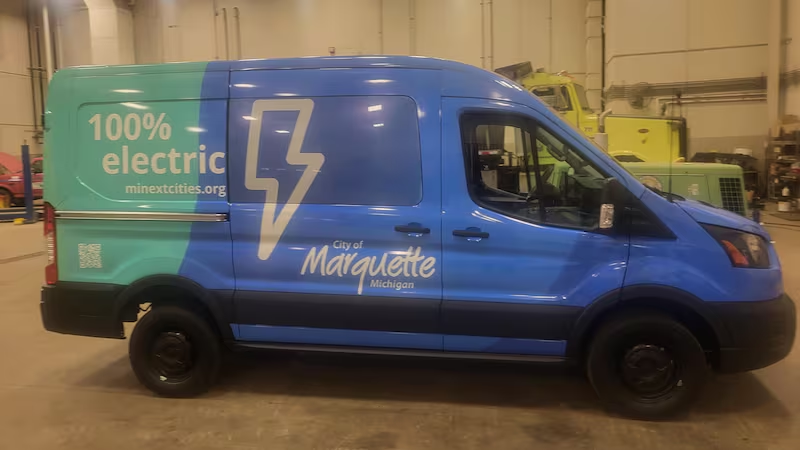Marquette City Employees Testing Electric Vehicles as Part of MiNextCities Project
Marquette city employees are participating in a new initiative to test electric vehicles (EVs) as part of the MiNextCities project. This project aims to promote sustainable transportation options and reduce greenhouse gas emissions in urban areas.
Sustainable Transportation Initiative
The MiNextCities project, funded by the state of Michigan, focuses on integrating EVs into city fleets to evaluate their efficiency and environmental impact. The initiative supports Michigan’s broader goals of achieving carbon neutrality by 2050. City employees are driving a variety of EV models to assess performance and suitability for municipal operations.
Evaluating Electric Vehicles
Participants in Marquette are driving different EVs, including sedans and utility vehicles, to determine their practicality for daily tasks. The feedback from this trial will be crucial in deciding future investments in sustainable transportation for city fleets. The project also includes the installation of charging infrastructure to support the increased use of EVs.
Environmental Impact
By testing EVs, Marquette aims to reduce its carbon footprint and contribute to cleaner air quality. The data collected from this initiative will help inform policy decisions and encourage other cities to adopt similar sustainable practices. For more information on the benefits of electric vehicles, visit the EPA’s guide on green vehicles.
Future Plans
The city plans to expand its EV fleet based on the results of this testing phase. The MiNextCities project represents a significant step toward creating more sustainable urban environments. It also highlights the potential for EVs to play a central role in reducing dependence on fossil fuels.
Original Story at news.google.com
